Sri Lanka at ‘tipping point’ with risk of return to past atrocities, activists warn
Civil rights groups say situation ‘getting worse on a daily basis’ as UN human rights chief expresses alarm over deepening impunity
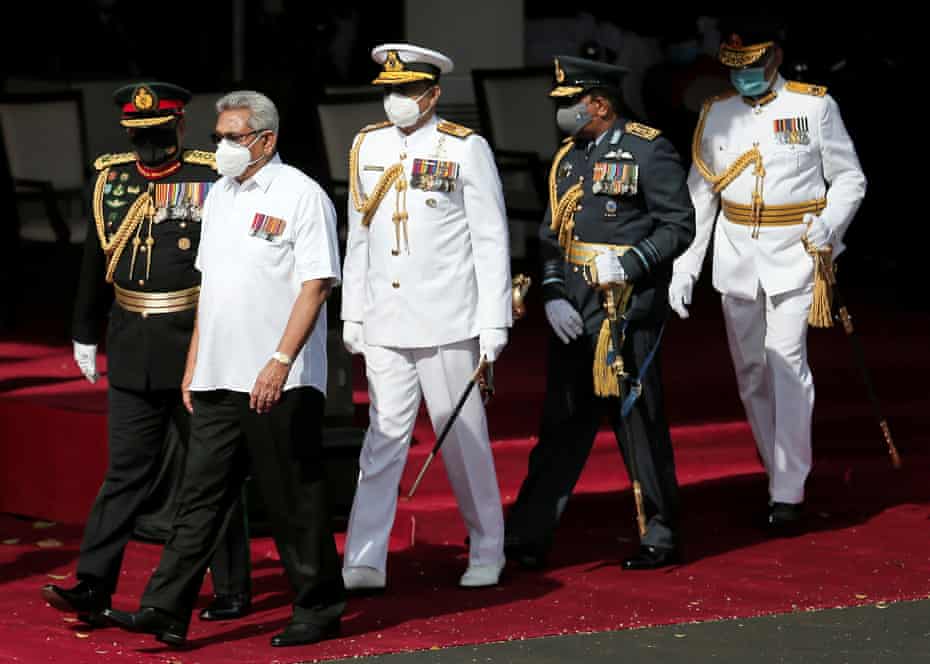
Sri Lanka could descend swiftly back into violence and human rights abuses unless decisive international action is taken, the UN high commissioner for human rights and civil rights groups warned.
In a speech to the human rights council on Wednesday, Michelle Bachelet is expected to issue a stark warning that the Sri Lankan government has “closed the door” on ending impunity for past abuses and is facing a return to state repression of civil society and militarisation of public institutions.
In January, the UN high commissioner for human rights expressed alarm over “worrying trends” in the country since President Gotabaya Rajapaksa took office in 2019.
In a damning report published last month, which will be formally presented to the council, Bachelet documented deepening impunity and obstruction of justice for atrocities committed during the brutal civil war of 1983–2009.
In the report, Bachelet said: “Sri Lanka’s current trajectory sets the scene for the recurrence of the policies and practices that gave rise to grave human rights violations.”
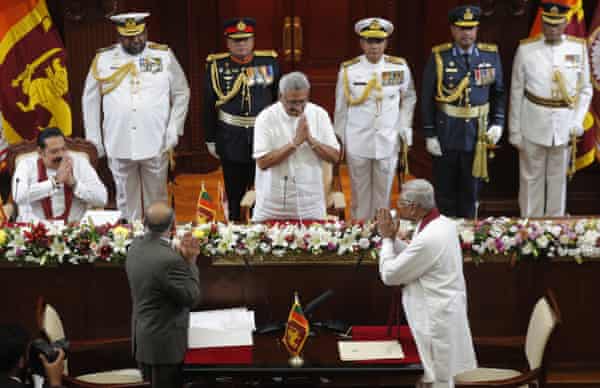
Photograph: Eranga Jayawardena/AP
Since 2020, the former army officer Rajapaksa has appointed at least 28 serving or former military and intelligence personnel to key posts, her report found. Some are senior officials implicated in alleged war crimes and crimes against humanity during the final years of the civil war, including army chief Shavendra Silva and defence secretary Kamal Gunaratne.
Rajapaksa, who was defence secretary when his brother Mahinda was president from 2005 to 2015, oversaw the defeat of the Tamil Tigers in 2009. During this period, unlawful killings and forced disappearances were widespread. It has been estimated that about 40,000 Tamils were killed.
The previous government had taken some steps towards accountability and war crimes tribunals, but these halted after Rajapaksa was elected in 2019. Last year, the government said it would no longer honour its commitments to a consensus agreed in 2015 to ensure truth, justice, reparation and an accountability mechanism for past abuses.
The failure to deal with past atrocities continues to have “devastating effects on tens of thousands of family members from all communities”, who persist in seeking justice, reparations and truth about the fate of their loved ones, Bachelet said.Q&A
What is the Rights and Freedom series?
A number of UN officials and independent experts, including four former high commissioners, signed a letter describing Bachelet’s report as a “compelling case” for decisive international action and praising its focus on prevention.
They wrote: “In 2009 the international community failed Sri Lanka. We must not fail again.”
Bachelet’s report documents a pattern of surveillance and harassment of civil society organisations and human rights defenders, which was echoed by activists who spoke to the Guardian. One said the situation for human rights and the rule of law was worsening on a “daily basis”.
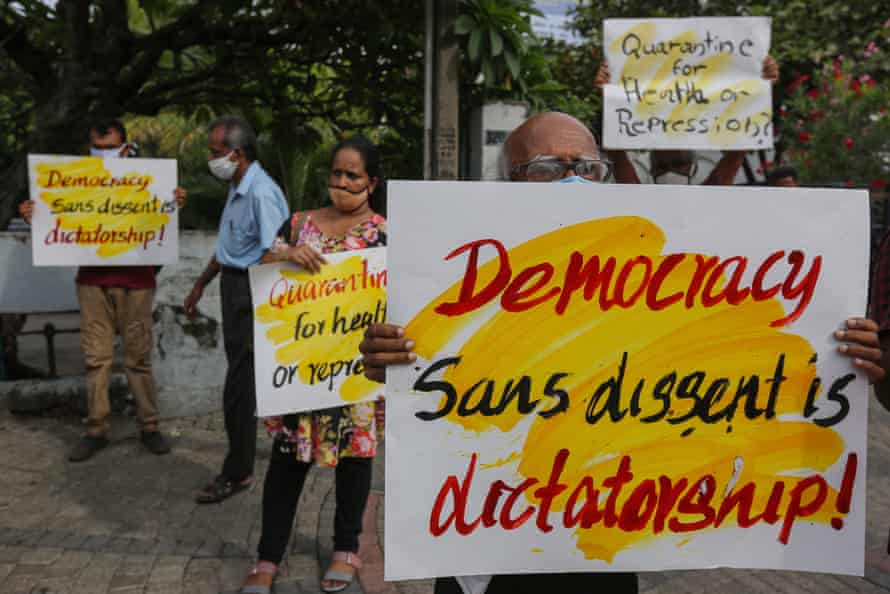
Dharisha Bastians, a Sri Lankan journalist who wrote for the New York Times before being forced into exile by harassment and threats shortly after the 2019 election, said she hoped UN member states would heed Bachelet’s call.Advertisement
“None of us expected this crackdown to happen so quickly,” Bastians said. “It is very disturbing and unfortunately it is a pattern we have seen before. Sri Lanka is at a tipping point.
“It is clear this government has no interest in advancing the cause of justice. On the contrary, every effort has been made by this government to obstruct justice. The president has set up a commission for political victimisation which has exonerated every single military officer accused of human rights violations, without even hearing from victims or hearing about the investigations.
“In some of the cases, the officers are already on trial in court. The attorney general is being pressurised to drop cases, witnesses are being pressurised into recanting evidence and families are being harassed.”
This was a “tragedy” for the families of the disappeared, she said, urging the international community to act. “The continued focus on impunity for attacks against journalists will help to keep my colleagues safer on the ground in Sri Lanka. The spotlight would send a message to the Sri Lankan government that the world will not turn its eyes away.”
Activists and campaigners said intimidation and harassment of civil society in Sri Lanka had led to the shrinking of civil space and had had a “chilling effect”.
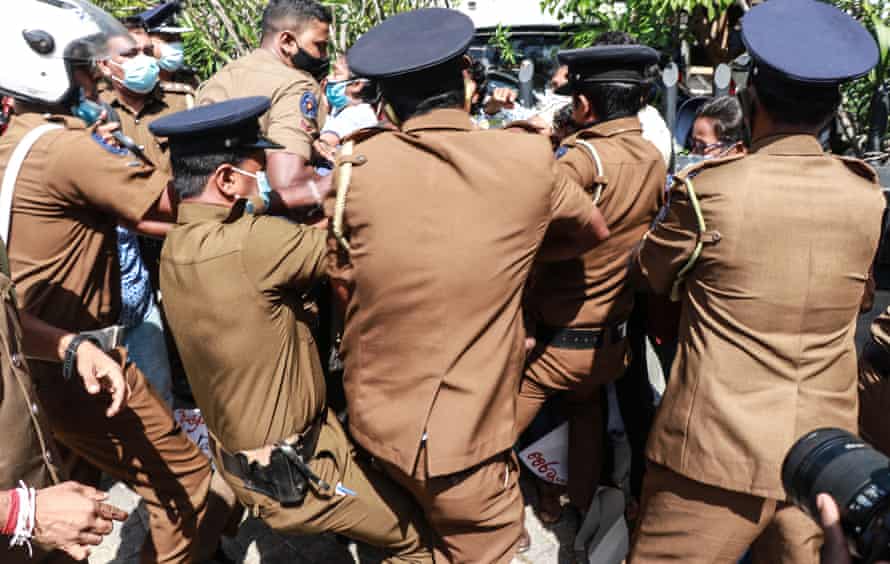
Shreen Saroor, a rights activist who works with women’s groups in the north and east of Sri Lanka, said groups had been forced to disclose information, including staff home addresses and phone numbers, and had been asked for bank details, to check funding sources.
“They want all charitable organisations and NGOs to register with the national secretariat for nongovernmental organisations, which comes under the defence secretary,” Saroor said.
The defence secretary is Gunaratne, who was a unit commander at the end of the war and is accused of war crimes.
“They are forcing us not to take foreign funding unless we register with the defence secretary and we will need defence ministry approval for the work we do,” Saroor said. She has been told that her work with war-affected communities is now “illegitimate”.
Melissa Dring, campaign director of the UK-based Sri Lanka Campaign for Peace and Justice, said the situation on the ground for human rights was “getting worse on a daily basis”.
Time was running out for the victims and survivors, she said. Since the beginning of the roadside protests by families of the disappeared, 78 people have died, she said.
“The resilience and determination of these protesters, the majority of whom are women, who have continued their protests over years and often been subjected to intimidation and harassment by the security forces and other state officials, is amazing,” she said.
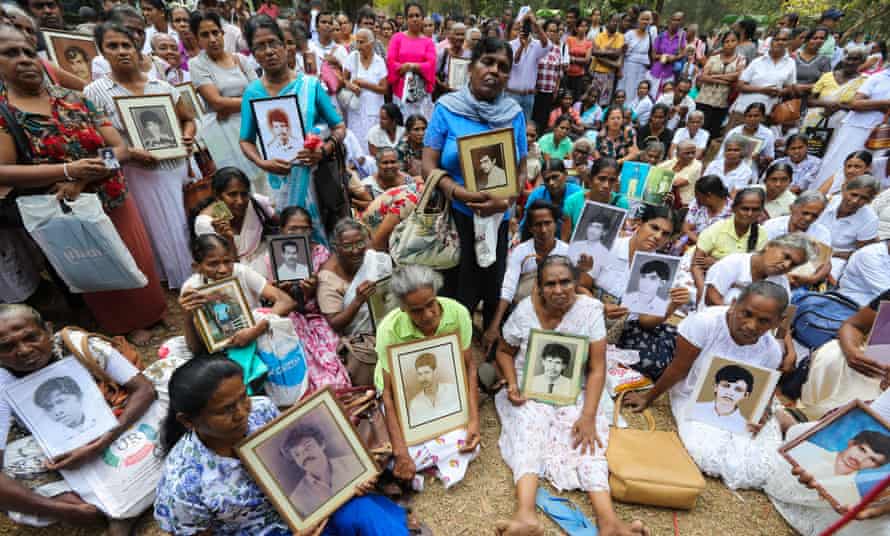
Meenakshi Ganguly, the South Asia director of Human Rights Watch, said: “If now, the international community fails to act, starting with a strong resolution at the UN human rights council, there is every chance that there will be a repeat, even a rise, in the targeting of activists, critics, victim families and minority communities.”
Amnesty International said in a recent report it had witnessed an “alarming crackdown” on civic space and the targeting of minorities, including Muslim communities, which make up 10% of Sri Lanka’s population.
Earlier this month, a group of Muslim families launched a complaint to the UN human rights committee about Sri Lanka’s policy of enforced cremation of all those confirmed or suspected to have died with Covid-19, saying it breaches their religious rights and is causing “untold misery”.
The Sri Lankan government has dismissed Bachelet’s findings of credible allegations of war crimes against senior government figures as “baseless”.
https://www.theguardian.com/global-development/2021/feb/24/sri-lanka-risks-return-to-past-atrocities-activists-warn-rajapaksa.
——————————————————————————————————————–

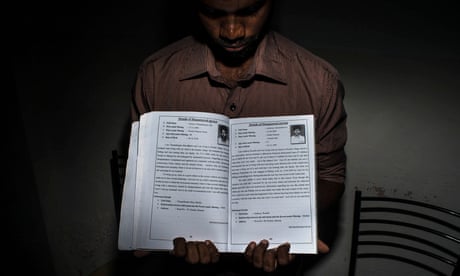
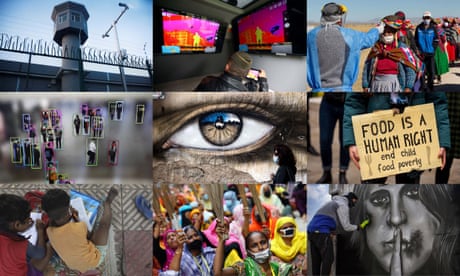
Leave a Reply
You must be logged in to post a comment.